How 'NC-17' Became a Scarlet Letter
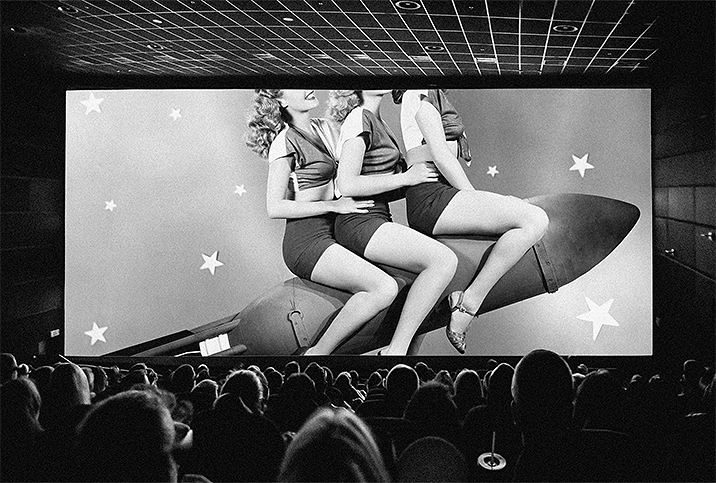
The Motion Picture Association of America (MPAA) is a bit like the sun: It's loomed large in our atmosphere for so long, it's easy to forget how harmful it can be—until, of course, it burns you.
For nearly a century, this massive trade association has represented most major film studios, and it's overseen the film ratings board since 1968. However, the way that those ratings are doled out, particularly the NC-17 rating introduced in 1990, amounts to a form of censorship that filmmakers, journalists and academics have protested for decades. It may be a ubiquitous force, but unlike sunlight, the MPAA hinders growth and creation instead of supporting it.
This raises the question: How has our collective consciousness been shaped by what we haven't seen?
Keeping things kid-friendly
By the 1960s, the MPAA had begun to assume its modern form under its president, Jack Valenti, a lobbyist and political advisor who had served in the Johnson White House. Valenti created the ratings system, ranging from the kid-friendly G to the adults-only NC-17, based on an often invoked but never defined "average American parent" and their standard of appropriateness for children. Since then, Valenti's handpicked board of raters (said to be composed of parents of young children) has vetted new studio films and recommended ratings.
In a statement to the press, Valenti once boasted, "I don't have any childhood behavioral experts on the panel, I just want ordinary people." He seemed to think that such experts might challenge his notion of what was truly best for kids, an instinct he was wise to heed. According to professors Joanne Cantor, of the University of Wisconsin-Madison, and Brad Bushman, then at Iowa State University, who coauthored the article "Media Ratings for Violence and Sex: Implications for Policymakers and Parents," while there is ample evidence that "exposure to media violence promotes aggressive behaviors, engenders attitudes more accepting of violence, increases hostility, and results in other antisocial outcomes," there is virtually no research to suggest that sexual content has a similar impact on youth.
And yet, the movies that get slapped with an NC-17 are far more likely to feature sexuality than violence. In 2015, data scientist Seth Kadish analyzed the language used to justify ratings, which revealed that descriptions of "violence" peak in R-rated films, while "explicit," "sexual" and "sexuality" peak in NC-17 ratings. Tellingly, in the classification guidelines given by the MPAA, only movies rated G, PG, PG-13 and R have specific descriptions given for content they may contain.

For example, according to the MPAA's movie ratings guidelines, "There may be depictions of violence in a PG-13 movie, but generally not both realistic and extreme or persistent violence." But when it comes to NC-17, the guidelines become much more vague and open to interpretation, stating that "an NC-17 rating can be based on violence, sex, aberrational behavior, drug abuse, or any other element most parents would consider too strong." This deference to "most parents," and the use of highly subjective terms like "aberrational behavior," allows a tremendous amount of space for personal bias to creep in.
The scarlet letters
The NC-17 rating is essentially a kiss of death. Movies that receive it are denied robust promotion because many theater owners won't screen them. Media outlets may also refuse to run ads for them, leaving the public unaware that the title exists, and making financial success impossible. "The difference between an NC-17 and an R rating could be millions of dollars, on some films maybe even tens of millions of dollars," said box office analyst Paul Dergarabedian.
It's bad enough that sex scenes are disproportionately likely to garner an NC-17 rating, but what's especially troubling is how sex scenes highlighting pleasure for queer and/or female characters are specifically targeted. The 2010 romantic drama "Blue Valentine," starring Ryan Gosling and Michelle Williams, initially received an NC-17 rating for a nudity-free scene in which Gosling briefly goes down on his costar, despite the endless array of men receiving oral sex in R-rated flicks. After Gosling made an impassioned protest calling out the blatant misogyny of the MPAA's decision, the ratings board backtracked and gave the film an R.
This practice of branding certain films as commercially untouchable is especially egregious because of how it's done in the shadows. Unlike in other countries, members of the MPAA ratings board are hidden from the public to whom they're supposedly accountable. In the 2006 documentary "This Film Is Not Yet Rated," director Kirby Dick hired private investigators and set out to identify the raters and shed light on the organization that selects them. What he discovered was alarming.
The filmmakers profiled in the documentary described countless instances of the MPAA punishing sexual expression in selective ways, including Jamie Babbit, director of 1999's "But I'm a Cheerleader." To appeal the NC-17, Babbit was asked to cut a sex scene between two women despite there being no nudity, along with a scene of a fully clothed woman masturbating over her pants. Babbit found this especially infuriating given the recent release of "American Pie," an R-rated film that depicted its protagonist masturbating into the pie in the trailer. It was a clear rebuke to "Cheerleader'' and its depiction of queerness and female sexuality.
What we haven't seen
Additionally, the documentary reveals the extent to which filmmakers are punished for choosing to operate outside the studio system. As told by Matt Stone, cocreator of "South Park" and "Team America: World Police," the MPAA claimed it couldn't give notes for avoiding NC-17s when he was an indie filmmaker because it would amount to censorship, but that it regularly offers such notes to him as a studio filmmaker, because studios fund the MPAA. This two-tiered system is clearly designed to deter independent operations, which, to First Amendment attorney Martin Garbus, only means one thing. As he tells director Kirby Dick in the documentary, "It's a substantial loss for society when you think people could be censors of anything, and the MPAA is one of the last vestiges of a censorship system."
If the potential consequences for an NC-17 rating could kill a film, then the rules for avoiding it should be the clearest. The MPAA's choice to decide on a case-by-case basis what will receive this designation, instead of adhering to specific standards, has inevitably resulted in the loss of countless films from having the cultural and social impact they might have otherwise had.
It's bad enough that sex scenes are disproportionately likely to garner an NC-17 rating, but what's especially troubling is how sex scenes highlighting pleasure for queer and/or female characters are specifically targeted.
In fact, said Justin Baksh, a licensed mental health counselor and chief clinical officer for Foundations Wellness Center in Port St. Lucie, Florida, making more life stories available to wider audiences, told from the unbiased perspectives of the people who lived them, could be an effective tool in alleviating social ills. "Movies do much more than just entertain us," Baksh said. "They also bridge physical, geographical and political barriers, bringing true-life issues right to your viewing screen."
Margaret King, Ph.D., who directs the Center For Cultural Studies & Analysis in Philadelphia, agreed that what we see on screen helps us understand what's possible in the world, particularly with respect to our relationships. "Human beings are intensely social," she said. "Even our ruminations have to do with what we are to others, following our group identity mentally and emotionally through real or imagined scenarios." What is the film industry but a series of highly orchestrated, massively broadcast ruminations about human interaction? When important, realistic and honest parts of those interactions are frequently omitted from them, such as sex, it suppresses our very humanity.
Censorship isn't Hollywood's only problem, but it's one of the few that has a direct source and a straightforward solution. The desire to shield young children from adult themes is legitimate. However, in order to protect the sanctity of expression on the biggest platform a creator can have, a ratings system built on fairness and transparency is essential, and it must be accountable to the public it purports to serve. It's the only path toward more honest depictions of sex and love onscreen.








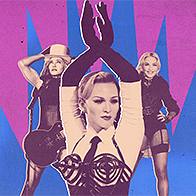





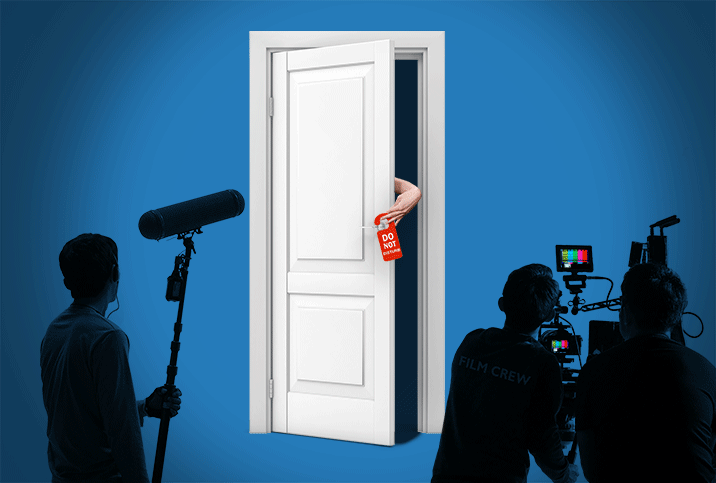

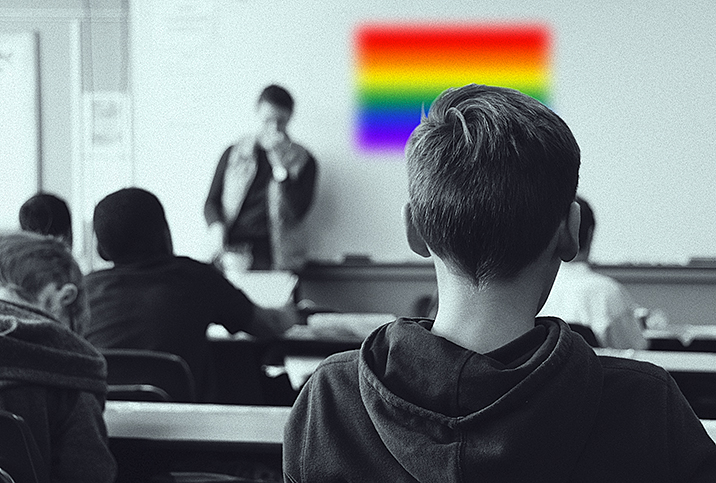
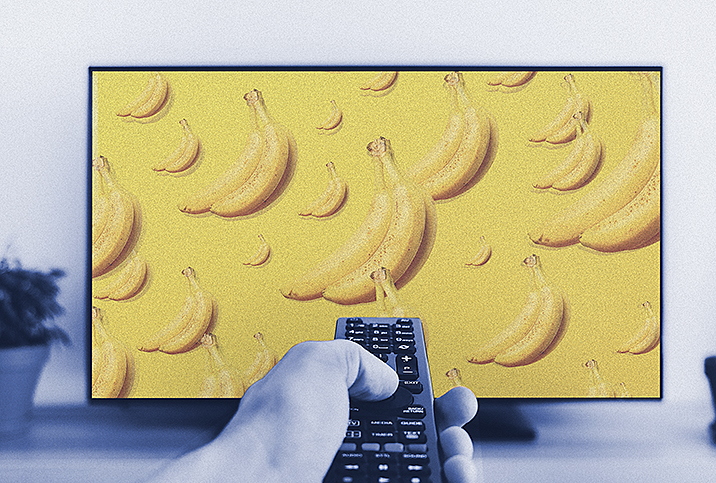



Commentary